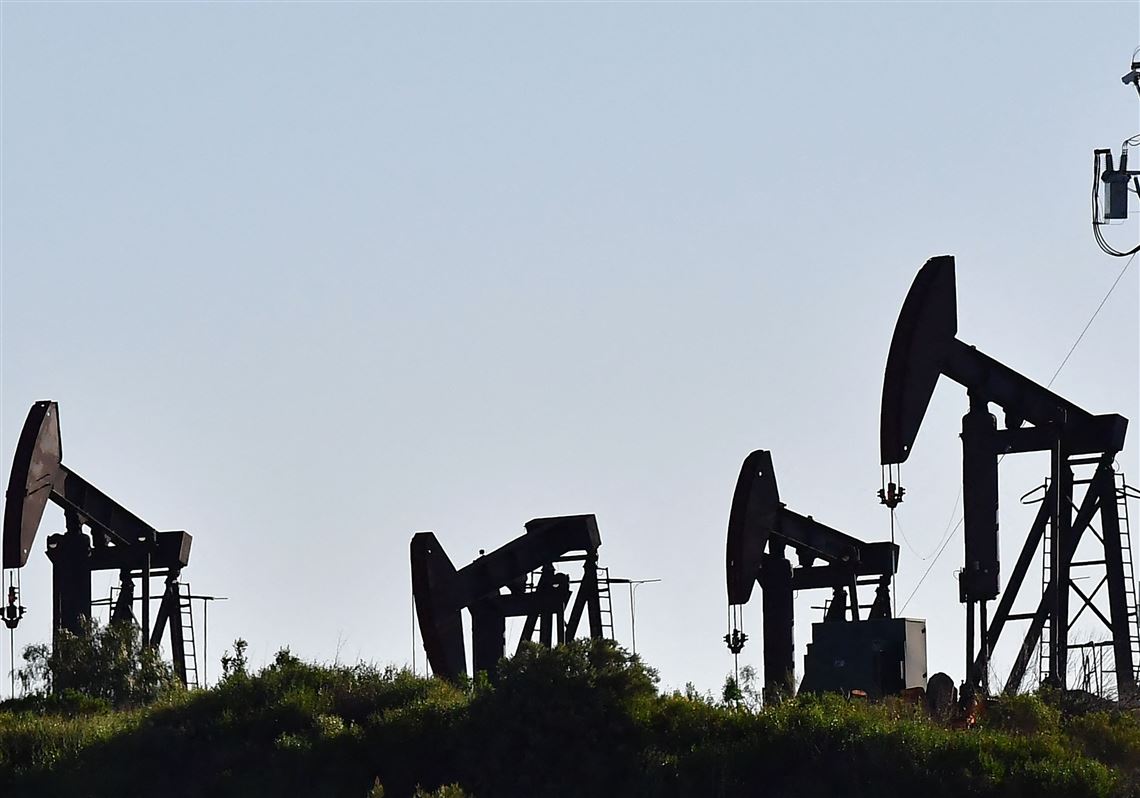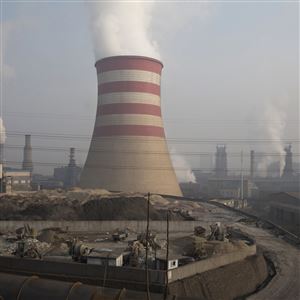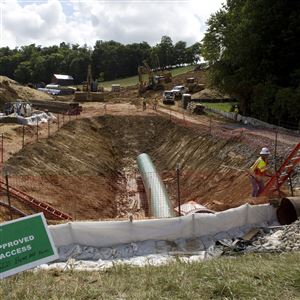This article is one of a series of articles the Post-Gazette will be running until the election, addressing the issues at stake from a diversity of views.
The Biden administration perceives climate change as an “existential threat,” but its energy policies are themselves the true existential threat to modern civilization. It’s not that “green” energy is bad. It’s just that the rate of going green and the amount of investment is wildly disproportionate to society’s energy needs, now and in the foreseeable future.
“Existential” issues like war, peace and economic viability all require energy. Energy to transport people and goods, energy to run farms and provide food, warm and cool homes, energy to power manufacturing in our mills and factories, energy needed to fuel ships, planes and vehicles for our military. Energy (natural gas) is also essential to producing fertilizer to feed a hungry world.
Today, world energy is provided almost entirely by the fossil fuels, oil, gas and coal. Those who have it will be powerful, those without it will not. China and Russia know this well.
Fossil fuels provide some 80% of the world and America’s energy consumption. The rest comes from hydro, nuclear, solar and wind. In the U.S., solar and wind provide less than 5% of our total energy consumption. For transportation, the percentage is even lower, at 2%. That’s for some 290 million cars, trucks, buses, etc. For planes, the percentage is zero.
Europe made a deal with the devil by handing over its energy supply to Putin’s energy-rich Russia while crippling its own energy future over the last decade, because of anti-fossil fuels climate change policies. EU governments closed coal, gas and nuclear power plants prematurely, while building solar and wind capacity at great expense. Putin’s invasion of Ukraine was in some large part based on his energy dominance over Europe.
And where is the United States government on this dangerous situation? Following Europe with vast green energy subsidies and an unrelenting “whole of government” regulatory war on fossil fuels, is where. Suppressing American oil production by some 1.4 million barrels compared to pre-pandemic levels, is where.
Depleting the Strategic Petroleum Reserve (SPR) by 1/3rd to its lowest level in almost 40 years to reduce the price at the pump right prior to an election, is where. Regulating American production downward combined with continued depletion of the SPR a not a good strategy for American energy sufficiency.
American coal production and use is number one on this administration’s climate change hit list. Coal is still crucial to the nation’s economy, constituting some 33% of total energy consumption in the U.S. and 37% in the world. It is being prematurely withdrawn from U.S. and global markets by climate change policies. Coal-rich Pennsylvania is the nation’s third largest exporter of coal after Wyoming and West Virginia.
America should be saying to an energy-insecure world, “We will do everything in our power to increase the supply of energy” in an-all-of-the-above approach including not only fossil fuels and renewables, but nuclear power and hydro when feasible.
Instead, we go begging, hat-in-hand, to hostile and less clean energy-producing dictatorships like Venezuela and Saudi Arabia to increase their production while we ourselves won’t increase ours. We could be the world’s ‘gas station for democracy’ but our government’s climate change policies stand in the way.
At the same time, demonizing sources of fossil fuels like natural gas and coal sets us back further. The “intermittent” wind and solar energy sources and electricity-storing battery technology are far from being able to handle America’s and the world’s electricity needs, no less needs for transportation, manufacturing, etc.
Ironically, if the concern is climate change, natural gas substitution for coal-powered generation is the very reason the U.S. has been leading the free world in reducing greenhouse gas emissions. For climate change policy-advocates, natural gas should be seen as the ‘bridge fuel’ en route to their desired non-fossil fuel future.
Western governments are suppressing fossil fuels much faster than the capacity of renewables, mostly wind and solar, to replace them. Inflation and global insecurity are the result. Yet the urge to go green continues apace regardless of these energy realities. This, in a nutshell, is the real “existential threat” to civilization.
Pennsylvania and its citizens are on the front line in the debate over America’s energy future. With congressional midterm elections fast approaching, voters have clear choices among the candidates. Pennsylvania is, and will continue to be, a fossil fuel-dependent state supporting manufacturing, steel and aluminum, heavy industry, etc — but only so long as it keeps plentiful and reasonably priced energy flowing.
Don Ritter, who represented the Lehigh Valley in Congress from 1979 to 1993, led the National Environmental Policy Institute after leaving Congress.
First Published: October 11, 2022, 4:00 a.m.

















